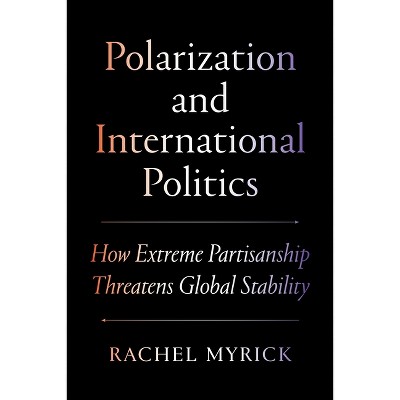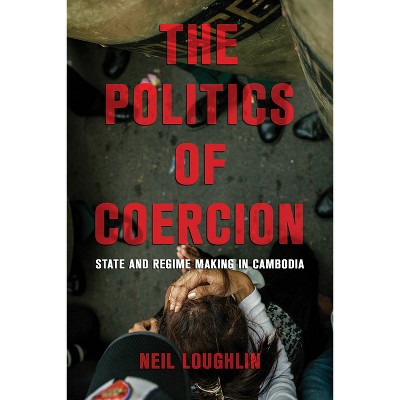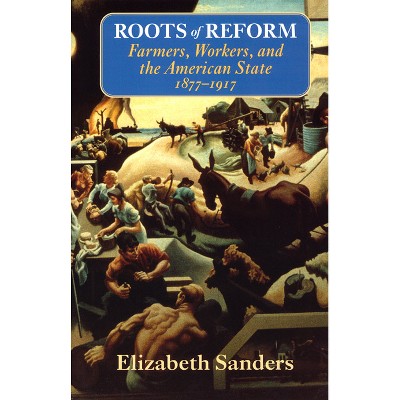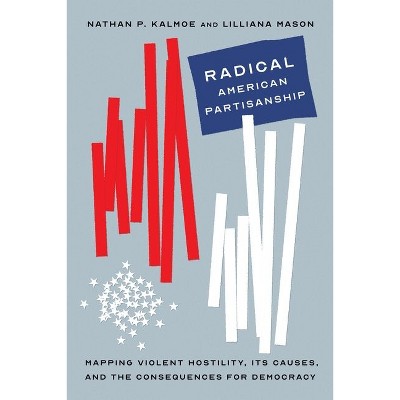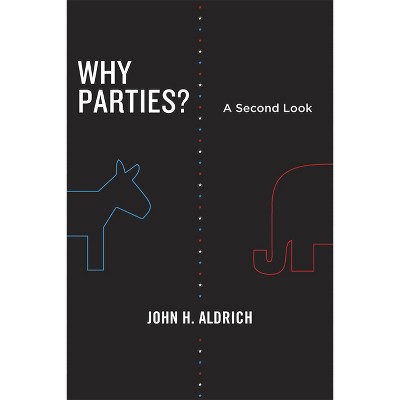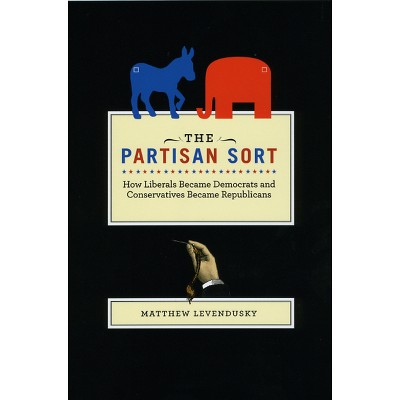Sponsored

The Roots of Polarization - (Chicago Studies in American Politics) by Neil A O'Brian
In Stock
Sponsored
About this item
Highlights
- A deeply researched account of how battles over civil rights in the 1960s shaped today's partisan culture wars.
- About the Author: Neil A. O'Brian is assistant professor of political science at the University of Oregon.
- 240 Pages
- Political Science, Political Process
- Series Name: Chicago Studies in American Politics
Description
About the Book
"Why are Democrats and Republicans so divided on "culture war" issues, such as abortion and gun control? Neil O'Brian traces the origins of our contemporary divisions to the moment at which the national parties polarized on civil rights in the 1960s: partisan divisions on civil rights that emerged in the 1960s created a set of constraints for party positioning on other cultural issues in the 1970s. Using a breadth of public opinion data and archival research, O'Brian shows how attitudes on civil rights were interlinked with attitudes on a range of other cultural issues decades before the parties split on these issues. Politicians and interest groups, jockeying for power in the uncertainty of the 1960s electoral landscape, seized on these pre-existing connections to build the parties' contemporary coalitions. Rather than political elites driving partisan divides, O'Brian argues parties were reacting to pre-existing forces churning in the mass public. Together, these findings offer a new frame for understanding how the 1964 racial realignment still shapes the party system today"--Book Synopsis
A deeply researched account of how battles over civil rights in the 1960s shaped today's partisan culture wars.
In the late twentieth century, gay rights, immigration, gun control, and abortion debates all burst onto the political scene, scrambling the parties and polarizing the electorate. Neil A. O'Brian traces the origins of today's political divide on these issues to the 1960s when Democrats and Republicans split over civil rights. It was this partisan polarization over race, he argues, that subsequently shaped partisan fault lines on other culture war issues that persist to this day.
Using public opinion data dating to the 1930s, O'Brian shows that attitudes about civil rights were already linked with a range of other culture war beliefs decades before the parties split on these issues--and much earlier than previous scholarship realized. Challenging a common understanding of partisan polarization as an elite-led phenomenon, The Roots of Polarization argues politicians and interest groups, jockeying for power in the changing party system, seized on these preexisting connections in the mass public to build the parties' contemporary coalitions.
Review Quotes
"'Acid, amnesty, and abortion.' That 1972 campaign smear doubled as prophecy, with culture war issues taking center stage in American politics in the ensuing decades. But why? In this synthetic, original, incisive, and far-reaching book, O'Brien challenges accounts focusing on political entrepreneurs and instead points to the central role of divisions over race. Far from replacing race-based divisions, today's cultural wars are an outgrowth of them."--Daniel Hopkins University of Pennsylvania
"This impressive book addresses an important question largely overlooked in the extensive literature on party sorting: why did the bundling of seemingly unrelated issues take the form that it did? O'Brian marshals a wide array of evidence to make a compelling case that the explanation is both surprising and simple: race was the issue that bound them all. In making that case The Roots of Polarization mounts a serious challenge to the common view that political change is usually top-down rather than bottom-up."--Morris Fiorina author of "Disconnect: The Breakdown of Representation in American Politics"
About the Author
Neil A. O'Brian is assistant professor of political science at the University of Oregon.Shipping details
Return details
Frequently bought together


Trending Non-Fiction











